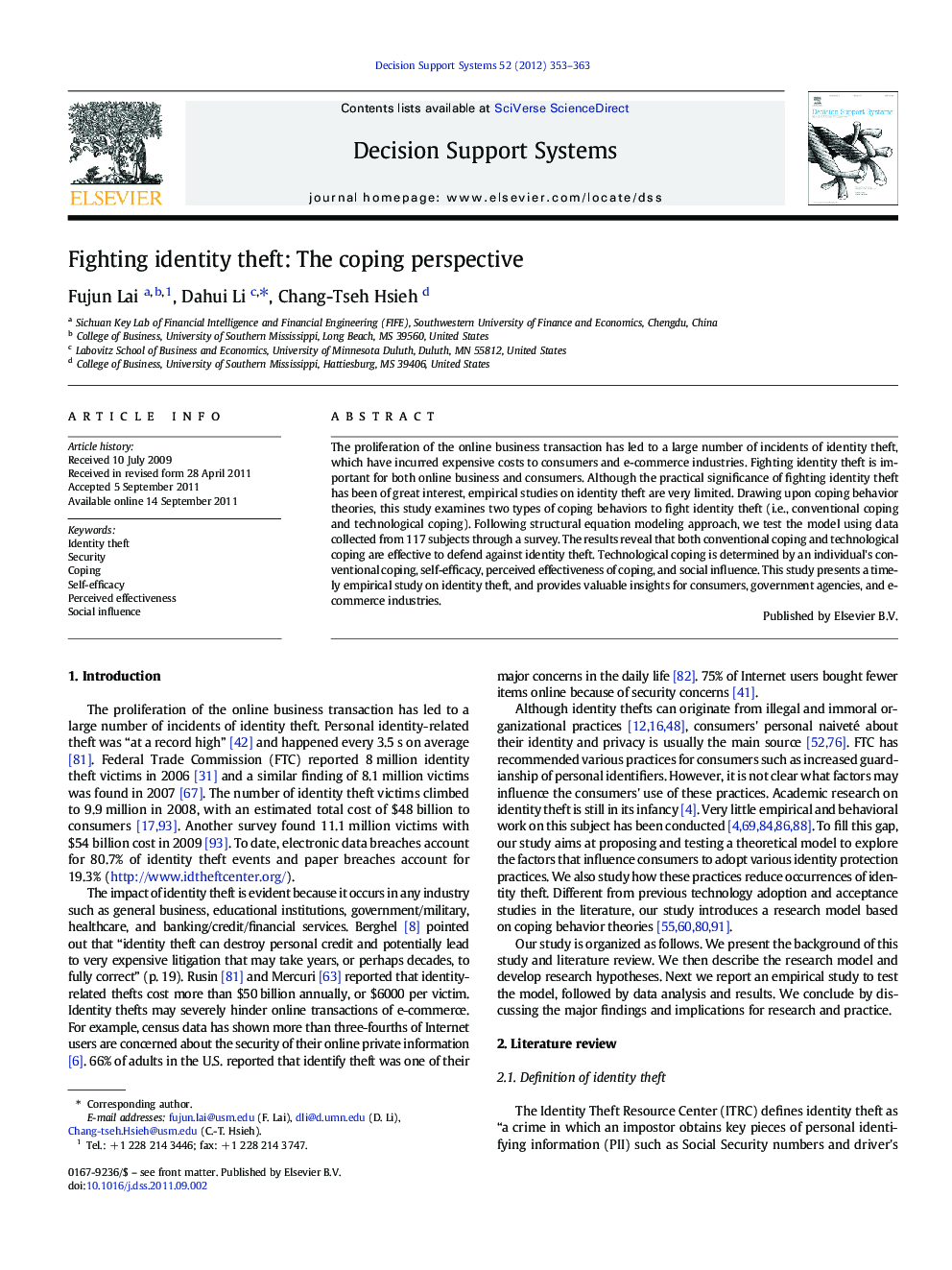| Article ID | Journal | Published Year | Pages | File Type |
|---|---|---|---|---|
| 553232 | Decision Support Systems | 2012 | 11 Pages |
The proliferation of the online business transaction has led to a large number of incidents of identity theft, which have incurred expensive costs to consumers and e-commerce industries. Fighting identity theft is important for both online business and consumers. Although the practical significance of fighting identity theft has been of great interest, empirical studies on identity theft are very limited. Drawing upon coping behavior theories, this study examines two types of coping behaviors to fight identity theft (i.e., conventional coping and technological coping). Following structural equation modeling approach, we test the model using data collected from 117 subjects through a survey. The results reveal that both conventional coping and technological coping are effective to defend against identity theft. Technological coping is determined by an individual's conventional coping, self-efficacy, perceived effectiveness of coping, and social influence. This study presents a timely empirical study on identity theft, and provides valuable insights for consumers, government agencies, and e-commerce industries.
► Identity theft is examined from the perspective of coping theories. ► Conventional coping (i.e. traditional wisdom) is as effective and comparably important as technological coping in defending against identity theft. ► Technological coping is influenced by an individual’s conventional coping, self-efficacy, perceived effectiveness of coping, and social influence.
